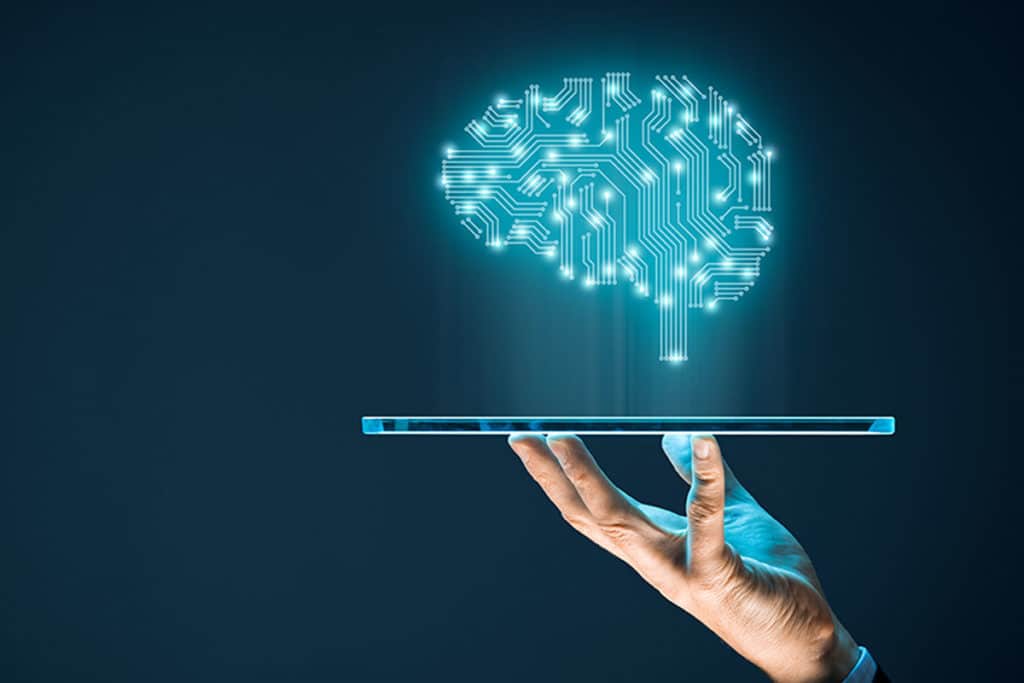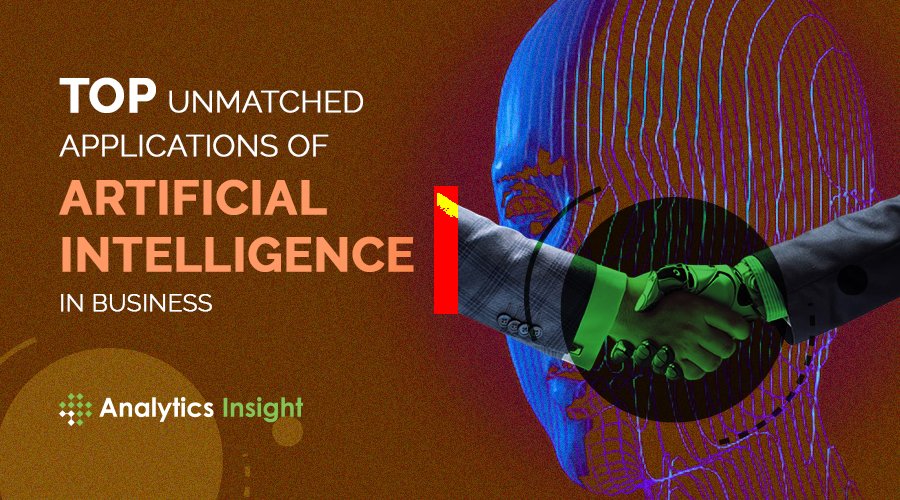Artificial Intelligence (AI) has several applications in business such as virtual assistants like Siri and Alexa, recommendation systems in e-commerce platforms, fraud detection in financial institutions, autonomous vehicles, NLP for chatbots and customer service, image and facial recognition in security systems, and medical diagnosis and healthcare systems. These applications revolutionize how businesses operate by streamlining processes, increasing efficiency, and improving decision-making.
With AI, businesses can automate repetitive tasks, enhance efficiency, and gain valuable insights. Integrating AI into a business’s strategy can be beneficial for tasks that require some level of human intelligence. We will explore the various applications of AI in business and how they can benefit organizations in different industries.
Introduction To Artificial Intelligence In Business
Artificial Intelligence (AI) has emerged as a game-changer in the business world, revolutionizing the way organizations operate and make decisions. By leveraging advanced algorithms and machine learning techniques, AI technologies can analyze vast amounts of data, detect patterns, and generate valuable insights. This enables businesses to streamline processes, enhance efficiency, and make smarter, data-driven decisions. In this article, we will explore seven applications of artificial intelligence in business and how they are transforming various industries.
What Is Artificial Intelligence?
Artificial Intelligence (AI) refers to the ability of a machine or a computer system to simulate human intelligence and perform tasks that would normally require human intelligence. It involves the development of computer programs and algorithms that can process data, learn from it, and make decisions or take actions based on the learned information.
Types Of Ai
There are several types of AI, each serving different purposes and exhibiting different levels of complexity:
- Reactive Machines: These are AI systems that can only react to specific situations, without any memory or ability to learn from past experiences.
- Limited Memory: These AI systems can learn from past experiences and use that knowledge to make informed decisions.
- Theory of Mind: These AI systems can understand the thoughts, intentions, and emotions of other entities, and use that understanding to interact and communicate effectively.
- Self-aware: These AI systems have a sense of self-awareness, recognizing their own existence, emotions, and abilities.
- Artificial Narrow Intelligence (ANI): This type of AI is designed to perform specific tasks and is limited to a narrow domain.
- Artificial General Intelligence (AGI): AGI refers to AI systems that have the ability to understand, learn, and apply knowledge across multiple domains, similar to human intelligence.
- Artificial Superintelligence (ASI): ASI represents AI systems that surpass human intelligence across all domains and are capable of outperforming humans in every aspect.
Benefits Of Ai In Business
Implementing AI in business can bring numerous benefits, including:
- Increased efficiency: AI-powered automation can streamline processes, reducing human error and speeding up operations.
- Improved decision-making: AI algorithms can analyze vast amounts of data, identify patterns, and generate insights, enabling businesses to make data-driven decisions.
- Enhanced customer experience: AI technologies such as chatbots and virtual assistants can provide personalized and real-time support, improving customer satisfaction.
- Cost savings: AI can automate repetitive tasks, reducing the need for human intervention and lowering operational costs.
- Risk mitigation: AI can help businesses detect fraud, identify anomalies, and mitigate risks in areas such as finance and security.
- Competitive advantage: By leveraging AI technologies, businesses can gain a competitive edge by delivering innovative products and services.
- Workforce augmentation: AI can augment human capabilities, enabling employees to focus on higher-value tasks while mundane tasks are automated.
Artificial Intelligence is no longer confined to science fiction; it has become an integral part of the business world. By embracing AI technologies, businesses can unlock new opportunities, drive growth, and stay ahead in today’s competitive landscape.

Credit: dvoconsult.com
Applications Of Artificial Intelligence In Business
Artificial Intelligence (AI) has transformed the way businesses operate, offering a range of applications that streamline processes, increase efficiency, and improve decision-making. From virtual assistants to medical diagnosis systems, AI is revolutionizing various industries. In this article, we will explore seven key applications of AI in business:
Virtual Assistants
Virtual assistants, such as Siri and Alexa, have become an integral part of our daily lives. These AI-powered assistants can perform tasks, answer questions, and provide information using natural language processing (NLP) algorithms. They not only enhance productivity but also create personalized user experiences. With virtual assistants, businesses can automate customer support, manage schedules, and improve the overall efficiency of their operations.
Recommendation Systems
E-commerce giants like Amazon rely on AI-powered recommendation systems to provide personalized product recommendations based on user preferences and browsing history. These systems analyze vast amounts of data and use machine learning algorithms to identify patterns and make accurate predictions. By leveraging recommendation systems, businesses can enhance customer satisfaction, increase sales, and drive customer loyalty.
Fraud Detection
Fraud is a significant concern for financial institutions. AI technology can help detect and prevent fraudulent activities by analyzing large volumes of data for suspicious patterns and anomalies. Machine learning algorithms can quickly identify potential fraud cases and alert businesses, enabling them to take proactive measures. With AI-powered fraud detection systems, businesses can safeguard their financial transactions and protect their customers.
Autonomous Vehicles
The development of autonomous vehicles is one of the most exciting applications of AI. Companies like Tesla and Google are investing heavily in AI technology to create self-driving cars. AI algorithms help these vehicles perceive their surroundings, make decisions, and navigate safely. Autonomous vehicles have the potential to revolutionize transportation, providing safer and more efficient travel experiences while reducing the reliance on human drivers.
Nlp For Chatbots And Customer Service
Chatbots are becoming increasingly popular for customer service, thanks to AI-powered Natural Language Processing (NLP) technology. These chatbots can understand and respond to customer queries in real-time, providing efficient and personalized support. NLP algorithms enable chatbots to comprehend human language nuances and offer accurate solutions. By utilizing NLP-based chatbots, businesses can improve customer satisfaction, reduce response times, and handle a higher volume of inquiries.
Image And Facial Recognition In Security Systems
AI-powered image and facial recognition systems are transforming the way businesses approach security. These systems can quickly analyze and identify individuals or objects using computer vision algorithms. From surveillance cameras to access control systems, AI-based image and facial recognition strengthen security measures by accurately detecting potential threats and unauthorized personnel. Businesses can protect their assets, personnel, and customers more effectively with these advanced security solutions.
Medical Diagnosis And Healthcare Systems
AI is revolutionizing the healthcare industry by enabling more accurate and efficient medical diagnosis. Machine learning algorithms can analyze patient data, medical records, and medical imaging to assist healthcare professionals in diagnosing diseases and recommending treatments. AI-powered healthcare systems can improve the accuracy of diagnoses, reduce errors, and enhance patient outcomes. From early detection of diseases to personalized treatment plans, AI has the potential to transform the way healthcare is delivered.
Case Studies Of Ai In Business
Artificial Intelligence (AI) is transforming the way businesses operate across various industries. From streamlining processes to improving decision-making, AI has become an indispensable tool for companies aiming to stay ahead of the competition. In this section, we will explore some real-life case studies that demonstrate the successful integration of AI in business.
Ai Integration In Business Strategy
One of the key areas where AI has made a significant impact is in the integration of AI into business strategies. By incorporating AI technologies into their strategies, companies can gain a competitive edge by leveraging the power of machine learning, data analytics, and automation. This allows businesses to optimize their operations, drive innovation, and make more informed decisions.
Examples And Success Stories
Several companies have successfully implemented AI within their business operations, leading to improved efficiency and profitability. One such example is Amazon, which utilizes AI for its recommendation system. By analyzing customer data and behavior, Amazon’s AI algorithms can suggest products that are highly relevant to each individual user, resulting in increased sales and customer satisfaction.
Another success story of AI integration is IBM’s Watson. Watson is an AI-powered platform that is capable of understanding and analyzing vast amounts of data. This technology has been successfully used in healthcare, where it helps doctors to diagnose and treat complex medical conditions more accurately and efficiently.
Tools And Technologies For Ai In Business
Implementing AI in business requires the use of various tools and technologies. These tools enable companies to leverage AI capabilities effectively. Some popular tools include:
- Machine Learning Frameworks: Frameworks like TensorFlow and PyTorch provide a platform for building and training machine learning models.
- Natural Language Processing (NLP) Libraries: Libraries like NLTK and SpaCy enable businesses to process and extract valuable insights from textual data.
- Data Visualization Tools: Tools like Tableau and Power BI help businesses to visualize and analyze complex datasets.
- Robotic Process Automation (RPA) Software: RPA software like Blue Prism and UiPath automate repetitive tasks, freeing up human resources for more strategic work.
By utilizing these tools and technologies, businesses can effectively implement AI solutions and drive positive outcomes in their operations.
In conclusion, these case studies highlight the diverse applications of AI in business and how it can transform various industries. Whether it’s optimizing business strategies, improving customer experiences, or automating processes, AI is becoming a game-changer. By staying up-to-date with the latest AI trends, businesses can leverage its power to gain a competitive advantage in the dynamic market.
Frequently Asked Questions Of 7 Applications Of Artificial Intelligence In Business
What Are Some Applications Of Ai In Business?
AI is applied in business for virtual assistants like Siri and Alexa, recommendation systems in e-commerce, fraud detection in finance, autonomous vehicles, NLP for chatbots, facial recognition in security, medical diagnosis, and healthcare systems.
How Ai Can Be Used In Business?
AI can be used in business in various ways, including virtual assistants, recommendation systems, fraud detection, autonomous vehicles, chatbots, facial recognition, and medical diagnosis.
What Are The 7 Types Of Artificial Intelligence?
The 7 types of artificial intelligence are: Healthcare, Chatbots, Social media, Autonomous vehicles, Finance, Marketing, and Process automation.
What Is An Example Of Artificial Intelligence Used In Business?
An example of artificial intelligence used in business includes autonomous vehicles, Siri, Alexa, Cortana, fraud detection, and personalized shopping recommendations on e-commerce websites.
Conclusion
In today’s rapidly evolving business landscape, the applications of artificial intelligence are endless. From virtual assistants and recommendation systems to fraud detection and medical diagnosis, AI is revolutionizing how businesses operate. By automating tasks, enhancing efficiency, and providing valuable insights, AI can streamline processes and improve decision-making.
With its wide-ranging potential, it’s clear that AI is not just a buzzword, but a real game-changer for businesses in all industries. Embracing AI can help organizations stay ahead of the competition and unlock new opportunities for growth.





